Re-imagining Rhodes House
The Rhodes Trust's Legacy, Equity & Inclusion advisory group on the theme of Re-imagining Rhodes House.
Charge: To offer ideas and options for how Rhodes House can become a more welcoming and inclusive space that tells its story more fully and critically engages its history and legacy through art and iconography, room names, virtual and physical tours, and programming. Key tasks the group is focusing on includes:
- Conduct an audit of art, iconography, room names, historical interpretation, and public information and access in the House and identify issues, gaps and opportunities;
- Consider and propose approaches for artwork, historical timelines, and physical and virtual tours;
- Consider and propose ways to celebrate the achievements of our alumni and friends who have made substantial contributions to improving the world and sustaining and strengthening our mission;
- Propose processes now and in an ongoing way for the Trust to solicit and consider nominations for Scholars, Fellows and others to be honoured with portraiture, photographs and artwork;
- Generate ideas for Trustee consideration regarding honorific room namings in the house;
- Generate ideas for opening Rhodes House to the local Oxford community.
-
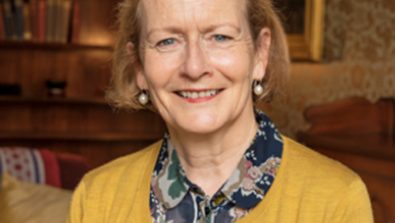
Chair - Dame Helen Ghosh
Dame Helen Ghosh
Dame Helen Ghosh has been a Rhodes Trustee since 2011. She studied Modern History at St Hugh’s College and then for an MLitt on 6th Century Italian History at Hertford College. After University, she joined the UK Civil Service where she worked for 30 years. Her most senior jobs were as the Permanent Secretary/CEO of the UK Environment Department and then the Home Office. In 2012, she left government service to become the Chief Executive of the National Trust, the UK’s (and Europe’s) largest heritage and environmental charity, with 5 million members, looking after 250 historic houses and other buildings, and a quarter of a million hectares of countryside, for public access and enjoyment. At the National Trust, she was deeply involved in changes to make the history of the houses and buildings more transparent and engage a more diverse group of visitors. In 2018, she became Master of Balliol College where she has personally sponsored a programme of research and communication on Balliol and its connections with the British Empire.
-
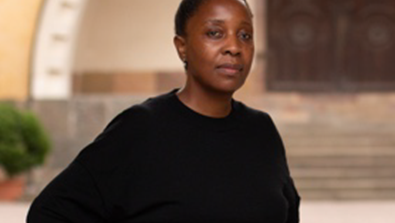
Co-Chair Dr Patience Mususa
Dr Patience Mususa
Dr Patience Mususa (Zambia & St Antony’s 2001) is an environmental anthropologist based in Uppsala, Sweden where she works as senior researcher at the Nordic Africa Institute. Her research focusses on mining and urbanisation, covering issues of inequality and social change. Her recent book “There Used to Be Order: Life on the Copperbelt after the privatisation of the Zambia Consolidated Copper Mines” published with Michigan University Press explores the experience of middle-income decline amid an economic crisis compounded by the retreat of state welfare and an HIV/AIDS epidemic. Patience has previously worked in architectural practice in Zambia and taught at the University of Cape Town and the Copperbelt University in anthropology and architecture respectively. She has worked with housing movements, mining communities and municipal authorities in Zambia advising on initiatives for inclusive urban design and planning.
-
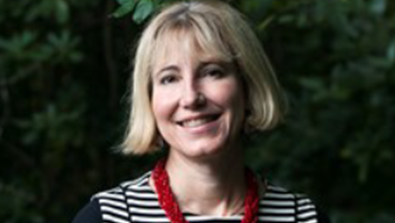
Professor Elleke Boehmer
Professor Elleke Boehmer
Professor Elleke Boehmer (South Africa-at-Large & St John’s 1985) is a Professor of World Literature in English, University of Oxford, since 2007. Director, The Oxford Research in the Humanities (TORCH), since 2015. Governing Body Fellow, Wolfson College. Education: Rhodes University; St John’s College, Oxford. Hildred Carlile Professor of Literatures in English, Royal Holloway, University of London, 2004-7. General and Founding Editor, Oxford Studies in Postcolonial Literatures Series, Oxford University Press, since 2004. Fellow of the English Academy, since 2005. Editorial Boards. Trustee, Charlie Perkins/Aurora Education Foundation, UK, since 2010. Man Booker International judge 2013-15. Honorary Doctorate, Linnaeus University, Sweden, 2009. Rhodes Trustee since 2016.
-
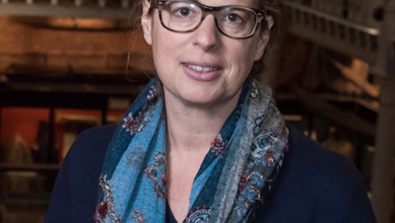
Dr Laura Van Broekhoven
Dr Laura Van Broekhoven
Dr Laura Van Broekhoven holds a Professorial Fellowship at Linacre College and is associated with the School of Anthropology and Museum Ethnography at Oxford. Previously, she was Chief Curator of the National Museum of World Cultures (Tropenmuseum; National Museum of Ethnology and Afrika Museum) and was a lecturer of archaeology, museum studies and indigenous heritage at Leiden University. A specialist in Middle and South American archaeology and ethnography, she has published on Mayan oral history; Mixtec market systems, Nicaraguan indigenous resistance and museum ethnography. Laura’s current research focuses on collaborative museological praxis, decoloniality, repatriation and redress, and the queering of binaries and boundaries.
Laura is co-chair of the Oxford and Colonialism network, represents the Gardens, Libraries and Museums on the OU Race Equality Taskforce and faculty of the Oxford Cultural Leadership programme.
-

Dr Tinashe Chandauka
Dr Tinashe Chandauka
Dr Tinashe Chandauka (South Africa-At-Large & Trinity 2015) is passionate about examining the contested legacy of Cecil Rhodes. While in Oxford, Tinashe researched and co-hosted a series of talks examining the enduring impact of Cecil Rhodes on the Trust, the architecture of Rhodes House and the people of Southern Africa. These talks were situated in contested spaces of legacy such as Rhodes House and the Pitt Rivers Museum. Tinashe points to his days as an architecture student at the University of Cape Town for being foundation of his interest in the Rhodes legacy and how it shaped urban space. He is currently based in Irvine (California), where he works as Director, Early Pipeline Development at Tarsus Pharmaceuticals.
-
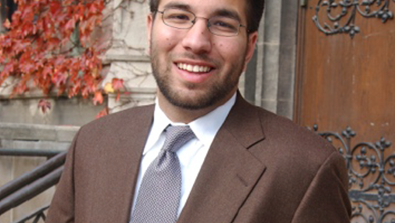
Professor Ian Desai
Professor Ian Desai
Professor Ian Desai (Illinois & Merton 2005) is a Professor of history and literature. He has taught at colleges and universities across the United States including Yale, Wesleyan, the University of Chicago, Reed, and NYU. He received his doctorate from Merton College, where he wrote his dissertation on Mahatma Gandhi and his collaborators in the struggle for Indian Independence. He is currently completing a book on Gandhi’s Library for Yale University Press.
Ian’s volunteer service in the Rhodes community began in 2008 as part of the team of scholars organizing the 30th Anniversary of Rhodes Women Celebration. Since then, Ian has co-founded the Rhodes Character,
Service, and Leadership Program (CSLP); facilitated CSLP retreats; worked with a group of alumni and current scholars to create the Scholars’ Library; and helped launch the Family Fund in Honour of Bob and Dawn Wyllie.
Ian believes that a positive future for our scholarship community must entail a meaningful reckoning with and response to the context of the scholarship’s founding, the legacy of bias and injustice across its history, and ongoing structural barriers to equity and justice in our community. If there are hopeful roads ahead for us, they must honestly and proactively traverse our fraught past and challenging present.
-

Elena Gallina
Elena Gallina
Elena Gallina (Idaho & Brasenose 2019) is a documentary photographer whose work focuses on capturing the still moments in often sensationalised environments. Growing up in Kosovo in the aftermath of the conflict there, and having worked with UN women and as a researcher in Syrian and Palestinian refugee camps as a young adult, her exposure to the misuse of humanitarian aid and exploitative nature of “storytelling” led to her artistic practice. She specialises in co-creative portraiture and writes philosophically on the classism and power imbalances of art narrative. A 2019 scholar, she holds an MSc in Economic and Social History and an MBA. Currently based in Oxford, her most recent commission was capturing sensitive subjects in a Covid-19 art response program for South Bank Centre.
-
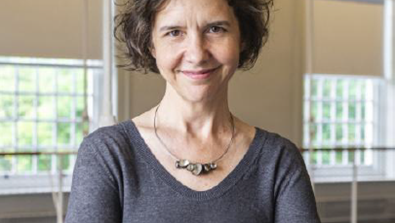
Professor Laura McGrane
Professor Laura McGrane
Professor Laura McGrane (Iowa & Somerville 1992) is Associate Provost for Strategic Initiatives at Haverford College and a 2021-22 ACE (American Council on Education) Fellow.
Previously she served as founding Director of Visual Culture Arts and Media (VCAM) and Chair of English at Haverford College. Her work in liberal arts as interdisciplinary practice explores alliances between arts, technology, sciences and community engagement. She spearheaded the creation and design of VCAM and oversees its grant programming with the Mellon Foundation and other funders in arts, visual studies, technology and community practice.
Recent grants of over $3M include the Mellon Philadelphia Area Creative Collaboratives program, the Mellon Visual Studies interdisciplinary minor project, the Creative Arts and Fabrication + Technology (CRAFT) initiative, the Summer Doculab program, HIP (Haverford Innovations Programming), and the Maker Arts Summer Design Collaborative.
She has also served as Director of the Hurford Center for the Arts and Humanities, overseeing the Cantor Fitzgerald Gallery and the Mellon Creative Residencies program. She is the District 4 Secretary for the American Rhodes Scholarship and is on advisory boards for the Swarthmore Aydelotte Foundation and the Educational Ecologies Collective. She leads workshops on issues of digital humanities and design in liberal arts education, and her teaching explores print culture and digital media, integrating theoretical work on interface, surveillance, and inclusivity into scholarship on the history of the book.
-
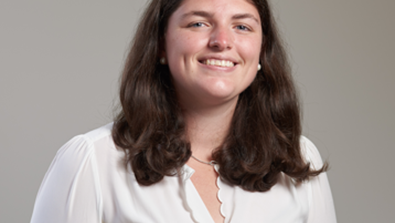
Sara Rotenberg
Sara Rotenberg
Sara Rotenberg (Ontario & St Catherine’s 2020) is a DPhil Student in the Nuffield Department of Primary Health Care studying how to improve health care for people with disabilities through better health worker training. Before coming to Oxford, Sara’s research was based in India focusing on improving the accessibility of the Mumbai Metro for people with disabilities, irrigation governance reform, and developing a collapsible, transportable stool for people with disabilities. A passionate advocate for disability inclusion in development and health equity, she has worked on health and development policy with the WHO, World Bank, Embassy of Canada to the United States, Health Canada, and CEPI. She is also deeply committed to reconciliation, and co-created Whose.Land, Canada’s first comprehensive app for Indigenous land acknowledgement. After beginning her undergraduate degree in Singapore, she graduated with a B.S. in Global Health from Georgetown University, where she was awarded the Outstanding Student Award for the School of Nursing and Health Studies and named the school’s first Rhodes Scholar.
-
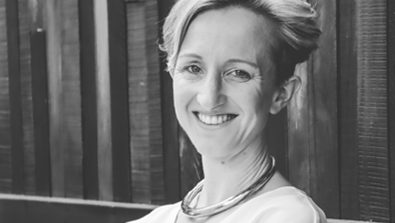
Dr Julie Taylor
Dr Julie Taylor
Dr Julie Taylor (Zimbabwe & St Anthony’s 2003) is founder and director of Guns & Rain, the Johannesburg contemporary art gallery established in 2014 to support emerging artists from southern Africa. With a focus on socio-political issues and the ongoing examination of African histories - both collective and personal - the gallery supports visual artists from 7 African countries. With a background in anthropology and international development, Taylor holds degrees from Cambridge and Oxford. She has recently completed a Masters in Art History at Wits University, focused on the practice of artists Helena Uambembe and Tuli Mekondjo in relation to Namibia’s Independence War. Taylor is author of Naming the Land, a book based on her doctoral research about San identity in northern Namibia, and has published multiple peer-reviewed journal articles. Before Guns & Rain, Julie headed Google’s communications for Sub Saharan Africa.
-
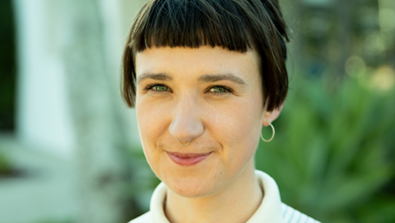
Alice Wroe
Alice Wroe
Alice Wroe is Augmented and Virtual Realities Lead for Atlantic Institute, where she researches, trials and co-creates innovative ways of using emerging technologies, with a focus on AR and VR, for building the Atlantic global community.
Previously she was Creative Director of Magic Leap’s digital human, where she oversaw the creative and ethical direction of the pioneering digital human who, used art and culture to engender positive ways for society to relate to embodied AI. Alice has spoken at the Wall Street Journal’s Future of Everything, The United Nations, Grace Hopper Celebration for Women in Computing and Sundance New Frontiers.
As Founder of Herstory, Alice has worked at the intersection of art, technology and social justice for leading institutions and brands, highlights include commissions for The Bill and Melinda Gates Foundation, Penguin Books and U2, where she curated digital content for the Joshua Tree tour in 2017 and 2019, championing country specific women’s history for 21 countries, seen by over 3 million people.
Alice is driven by developing virtual experiences that don’t compromise the humanity of the user, but rather look with hope to a future where technology enables everybody to reach their full potential and create a fairer and more inclusive society.










